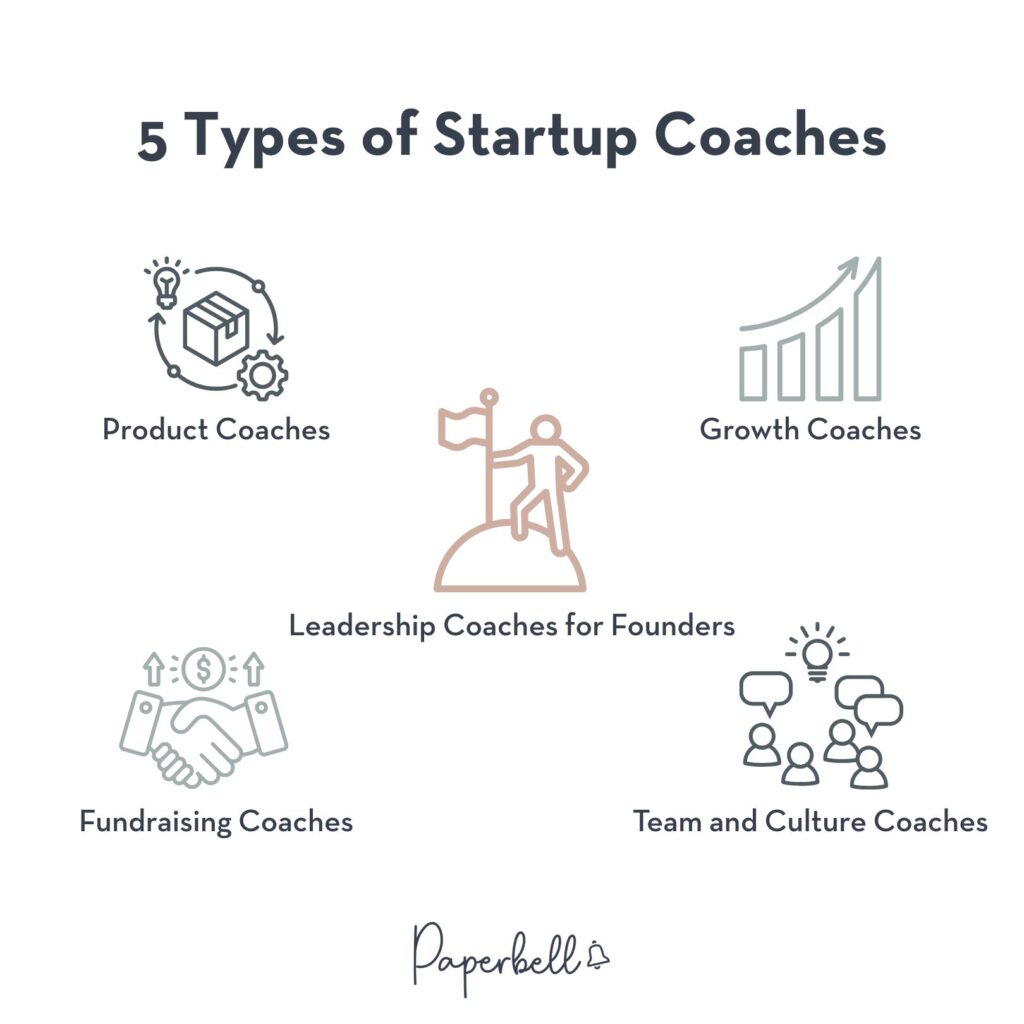Launching a startup is exciting, but it’s also filled with uncertainty. Founders juggle product development, fundraising, hiring, and scaling, often without prior experience in these areas.
A startup coach can make a big difference. They provide tailored guidance to help early-stage businesses navigate challenges, avoid common pitfalls, and build a solid foundation for business development.
What Is a Startup Coach?
A startup coach is a specialized business coach who works with founders and early-stage companies to refine their vision, make strategic decisions, and develop the skills needed for long-term success.
For early-stage companies, working with a coach can mean the difference between stagnation and success. The right coach helps startup founders move faster, make smarter decisions, and gain confidence in areas they may not have expertise in.
Because startups face high failure rates, having an experienced guide can increase their chances of survival and sustainable growth.
While business coaches typically work with established companies to optimize performance, startup coaches focus on the unique needs of new ventures, such as:
- Validating ideas: Helping founders assess market demand and refine their value proposition.
- Creating strategic roadmaps: Guiding entrepreneurs in setting milestones and prioritizing growth efforts.
- Building leadership skills: Supporting founders in developing resilience, decision-making abilities, and effective communication.
- Navigating fundraising: Providing insights into pitching, networking with investors, and structuring deals.
- Scaling teams and culture: Advising on hiring strategies, team dynamics, and company culture.
They help founders think through big decisions and avoid common mistakes. Unlike consultants, who often provide direct solutions, startup coaches empower entrepreneurs to develop their own problem-solving skills.
5 Types of Startup Coaches

Not all startup coaches focus on the same areas. Depending on their specific challenges, founders may work with different types of coaches to support various aspects of their businesses.
Product Coaches
A product coach helps startups refine their product vision, improve user experience, and ensure market fit. They guide teams through product development, user testing, and iteration cycles to build something customers truly want.
Growth Coaches
Growth coaches specialize in scaling customer acquisition, retention, and revenue. They assist with marketing strategies, conversion optimization, and data-driven decision-making to accelerate business growth.
Leadership Coaches for Founders
Founding a company is not just about business strategy but also about personal and professional growth. Leadership coaches help entrepreneurs build resilience, develop strong decision-making skills, and become effective leaders as their companies scale.
Fundraising Coaches
Raising capital is one of the biggest challenges for startups. Fundraising coaches help founders craft compelling pitch decks, refine their investor messaging, and navigate the funding process to secure the right partnerships.
Team and Culture Coaches
As startups grow, so do their teams. Team and culture coaches guide founders in building a positive work environment, strengthening team dynamics, and creating a company culture that attracts and retains top talent.
What Does It Cost to Work With a Startup Coach?
The cost of hiring a startup coach varies widely based on their experience, reputation, and the level of support they provide. Here’s what founders can typically expect:
- Hourly sessions: $150–$500 per hour
- Monthly retainers: $2,000–$10,000 per month
- Equity-based coaching: Some coaches work for a small percentage of the startup’s equity instead of a fixed fee
While this may seem like a significant investment, the right coach can help avoid costly mistakes and accelerate growth.
When It’s Time to Hire a Startup Coach
Every startup goes through critical growth stages where the right guidance can make all the difference. A startup coach helps founders navigate these high-stakes transitions, avoid costly mistakes, and make informed decisions.
Key Growth Inflection Points
Here are some key points where hiring a coach can be a game-changer:
- Pre-seed to seed: At the very beginning, startups are all about idea validation, early customer discovery, and laying the foundation for growth. A coach can help founders refine their vision, test their assumptions, and develop a clear roadmap to secure their first round of funding.
- Product-market fit: Many startups fail not because of bad ideas but because they can’t get traction. A startup coach can guide founders in analyzing customer feedback, iterating their product, and fine-tuning their go-to-market strategy to create real demand.
- Series A and beyond: As a startup scales, challenges shift from survival to managing growth. A coach can help with leadership development, team dynamics, and operational efficiency to ensure the company can handle its expansion without losing focus or culture.
Warning Signs That Indicate It’s Time for Coaching
Even if a founder isn’t actively seeking help, certain red flags suggest that coaching could be a valuable investment. If any of these resonate, it might be time to bring in a startup coach:
- Team conflicts: When co-founders or team members aren’t aligned, it can slow down progress and create an unhealthy work environment. A coach can act as a mediator, helping to resolve tensions and ensure everyone is working toward the same goals.
- Founder burnout indicators: Startups demand intense commitment, but when exhaustion turns into chronic stress and disengagement, it can jeopardize both the business and the founder’s well-being. A coach can provide perspective, help set boundaries, and guide founders in building sustainable habits.
- Growth plateaus: If revenue has stalled or customer acquisition is stagnant, a coach can help diagnose what’s holding the startup back—whether it’s the business model, pricing strategy, or lack of the right hires.
- Investor pressure: Once investors are involved, the stakes are higher. A coach can help founders navigate investor expectations, improve communication with stakeholders, and stay focused on long-term success rather than reactive short-term decisions.
How to Become a Startup Coach
Gain Practical Experience
A great startup coach doesn’t necessarily need a formal coaching certification, but real-world experience in the startup ecosystem is essential.
Former founders, investors, or operators make great startup coaches because they are subject matter experts. They’ve been in the trenches, so they often have the best insights into business operations.
That said, having a foundational understanding of coaching techniques, like active listening, powerful questioning, and goal-setting frameworks, can make a huge difference in the impact you make.
Start Testing Your Methodology
Start by offering guidance to early-stage founders in your network. This could be through informal mentorship, advisory roles, or even structured coaching sessions. Pay attention to common challenges they face and the areas where your advice is most impactful.
Pro bono work is also a great opportunity to gather feedback, testimonials, and referrals to your first paying clients.
Design Your Coaching Program
Once you’ve refined your approach, formalize your coaching services into a structured package.
Define the time frame and pace of your startup coaching program, your session structure, and what other forms of support you’ll be offering. Come up with a format that’s most effective to get your clients to their desired outcomes.
For example, your Product-Market Fit Accelerator package may include:
- 6-8 weeks of intensive coaching
- Market validation frameworks and exercises
- Personalized feedback on MVP
- Metrics tracking for traction
- Ongoing accountability
Paperbell makes it easy to set up and sell your coaching packages. You can choose from various pricing structures, from flat payments to installments and subscriptions. Each package you add will get its own landing page, tied together by your very own personalized coaching website.
Set Up Your Practice
To manage clients efficiently, you must have the right systems in place. Otherwise, you could end up spending more time on admin work than actual coaching.
That’s why it’s essential to streamline your workflow from the start. Paperbell is an all-in-one client management tool that handles your bookings, payments, contracts, client surveys, package materials, automated emails, and so on.
You’ll find all your client data on a simple dashboard and can provide individual client portals to everyone you work with. This way, you don’t have to manage separate systems to give your clients the best experience.
Promote Your Services
Even if you have extensive experience in the startup world, you’ll need to market yourself. The best way to do this is by showcasing the results you create for clients and positioning yourself as a trusted authority in the startup space.
Start by using testimonials from early clients. A few well-placed success stories on your website or LinkedIn profile can be powerful proof of effective startup coaching.
Take it a step further by creating case studies that outline how you helped founders navigate challenges like fundraising, hiring, or product-market fit. The more specific and measurable the results, the more compelling they’ll be.
Positioning yourself as a thought leader is another great way to attract more clients. You may speak at relevant events, get on podcasts, or contribute to industry blogs to establish credibility and give potential clients a taste of your expertise.
Sharing insights on common startup challenges, whether through social media posts, newsletters, or articles, is a great way to stay top of mind when founders are ready to seek coaching.
Curious how Paperbell founder Laura Roeder grew MeetEdgar into a 7-figure business while working part-time? Check out her blog on Medium. In her posts, she also shares how she’s been running Paperbell with no meetings or managers for the past five years.
Real-World Startup Coaching Case Studies
Many founders turn to startup coaches not just for business advice but for accountability, clarity, and personal development. Here are two real-world examples of how coaching has helped startup founders navigate key challenges in their entrepreneurial journeys.
Deevo Tindall had already launched two successful companies when he decided to hire a startup coach for his third venture. In this LinkedIn post, he highlights how his coach helped him see his blind spots, stay accountable, and explore new parts of himself as a founder.
For him, personal chemistry was key to picking the right professional. He writes, “Think of them as your business partner. There has to be symbiosis, connection, reality check, and to illustrate this point, I have literally broken down in tears twice already.”

Alex Turnbull, Founder of Groove, hired a coach at a later stage of his startup when, after a period of fast growth, it was time to create processes.
He writes on his company blog, “As much as we’re proud of how far we’ve come, we’ve grown through being scrappy, moving fast, and breaking things along the way.”
His coach could guide them through and keep them accountable for the systems and processes that would help them scale in a predictable and repeatable way.
These stories show that the right startup coach can make a meaningful impact, whether by helping a founder overcome blind spots or guiding a team through the growing pains of scaling a successful business.
FAQ
How Much Does a Startup Coach Cost?
Startup coaching rates vary widely, from $150 to $500 per session or $2,000 to $10,000 per month, depending on experience, engagement scope, and company stage.
How Long Should a Startup Coaching Engagement Last?
A startup coaching process may range from a few months to a year or more. Some startup founders opt for short-term coaching for specific challenges, while others prefer ongoing support through key growth stages.
What’s the Difference Between a Startup Coach and a Mentor?
A mentor offers informal advice based on experience, while a startup coach provides structured, goal-oriented guidance, accountability, and frameworks tailored to a founder’s challenges.
Can a Coach Help With Fundraising?
Yes, many startup coaches specialize in fundraising, helping with pitch decks, investor outreach, negotiation strategies, and positioning to attract the right investors.
Should Startup Coaches Have Equity in Their Client Companies?
Some coaches accept equity as part of their compensation, but many prefer cash payments to maintain objectivity. Equity arrangements should be structured carefully to align incentives.
What Does It Take to Become a Startup Coach?
Strong business knowledge and startup experience, coaching skills, and a proven track record of guiding startup founders are key. Many start by coaching within their network, refining their approach, and creating structured coaching packages.
Get Your Practice Organized
If you want to become an effective startup coach, you need to make sure that running your practice requires minimal energy. In other words, you need an automated client management system.
Paperbell handles everything, from your coaching website to your bookings, payments, and contracts. It lets you create installment plans and subscriptions, run client surveys, provide clients with a self-service portal, and a lot more.
Try Paperbell for free and discover how it can transform your business.










